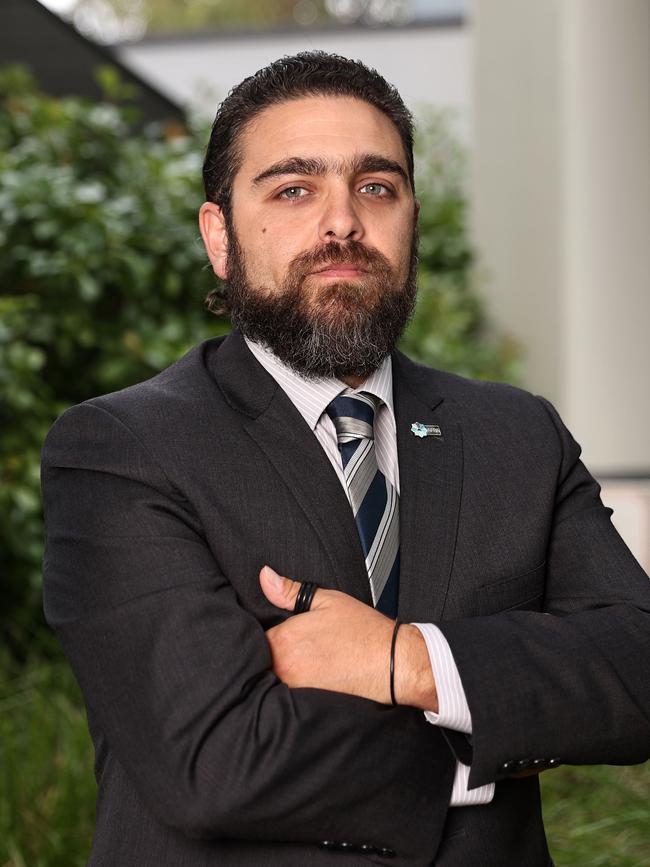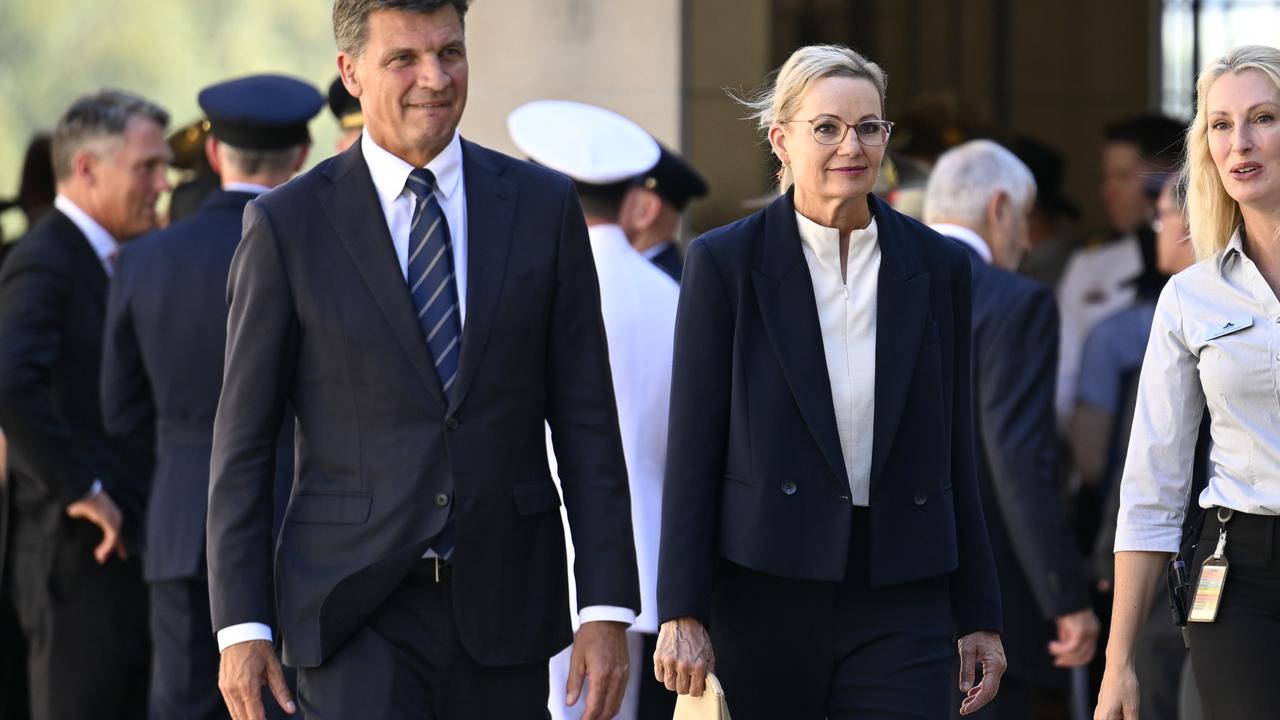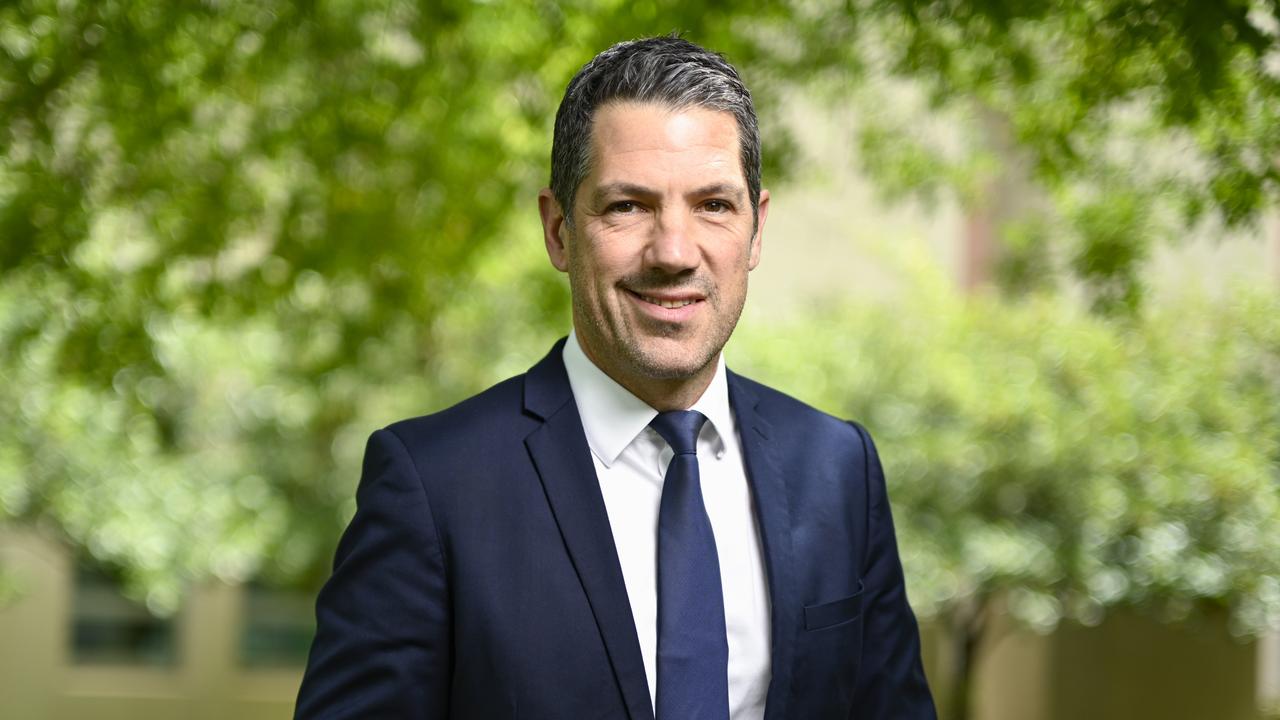Australian Federal Police union threat to shut down airports, parliament
In a severe escalation of its dispute with Labor over pay and conditions, the AFP union is threatening strike action to close airports and the sitting of parliament.

The Australian Federal Police union is threatening strike action to “shut down” airports and the sitting of federal parliament in a severe escalation of its dispute with the Albanese government over pay and conditions.
AFP Association president Alex Caruana said the union had sought legal advice about whether AFP officers could legally walk out at airports and when parliament was sitting, saying members were sick of being “disrespected” by government.
“(We are considering) walking out at airports, walking out at Parliament House, walking out from other commonwealth assets and essentially shutting them down in order to make a point to the government and the AFP that we are serious about fighting for our pay and conditions and we want a fair pay deal,” he told The Australian.
Denouncing the government’s latest pay offer of 11.2 per cent, Mr Caruana said he had spoken to about 1000 AFPA members in recent days and “it’s very clear they are very willing to vote yes to that action”.
“Essentially, it would be that airports might have to shut down, parliament would have to stop sitting and certain other assets might have to come up with other arrangements,” he said, identifying the Australian Nuclear Science and Technology Organisation and the Holsworthy Barracks as other potential locations for industrial action.
“It is a severe escalation but our members are sick of being disrespected by the government and by the AFP, and they want a fair pay deal. They don’t want to be the lowest paid police force in Australia.”
The AFPA is urging members to vote no to the AFP pay offer, which includes increases to allowances on top of 11.2 per cent in wage rises over three years.
If the offer is rejected, Mr Caruana said the union would examine applying to the Fair Work Commission for a protected action ballot order to authorise more significant industrial action. “It’s difficult for the AFP to do any strike action, or withholding of labour action, because of the implications to national security,” he said. “What I can say is that we are engaging some lawyers to look at what our options are in that space.
“We would consider that if we were to withdraw some labour from the airports, and we were to withdraw labour from places like Parliament House, from places like ANTSO and a few other places like Holsworthy etc, we’re not actually putting the community at risk.
“If the airports continue to operate, the airports are then taking on that risk. If parliament chooses to sit, the parliament is then taking that risk but we are currently getting legal advice as to whether or not under the AFP Act, that would be in breach of national security and a step too far. We will consider any measures necessary to get the point across to government and the AFP that they need to offer a fair wage deal for AFP members.”

An AFP spokesperson said the proposed pay rises were in line with government bargaining policy, while the introduction of several new allowances and conditions would significantly enhance the remuneration and flexibility for employees.
“The AFP recognises the right of employees to take responsible and legally appropriate protected industrial action where allowed for under the law, and to the extent those actions are safe and properly managed and do not cause disruption or affect community safety and national security,” they said.
“The AFP has put in place contingency plans to ensure there are no disruptions to operational capability and no impacts to community safety from protected industrial action that has been notified.”
A new survey of 2206 AFPA members found 80 per cent opposition to the proposed agreement, while 87 per cent did not feel the government respected them and the work they did in “protecting the community and Australia”.
“There is a bit of hypocrisy where the Labor government is pushing the same pay for the same job but why can’t AFP members get the same pay for the same job when we are compared to colleagues in state jurisdictions,” Mr Caruana said.
“I would argue we are doing a similar job and probably a more taxing job, just as dangerous.
“It’s also a bit of a slap in the face considering that we helped the Labor Party get the Closing Loopholes Bill over the line. We, as an association, feel as though we were used as a political pawn and we’ve got nothing to show for it. The Attorney-General himself has said he would like to see the AFP paid in the top 25 percentile of police forces in Australia. This offer clearly doesn’t recognise that.”








To join the conversation, please log in. Don't have an account? Register
Join the conversation, you are commenting as Logout